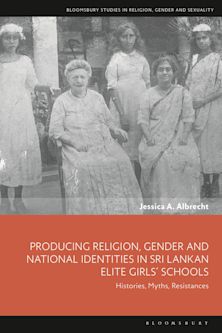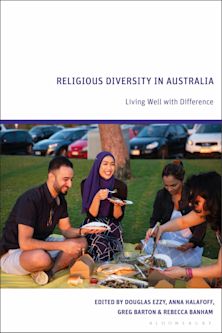Socio-Anthropological Approaches to Religion
Environmental Hope
Socio-Anthropological Approaches to Religion
Environmental Hope
This product is usually dispatched within 1 week
- Delivery and returns info
-
Free CA delivery on orders $40 or over
Description
Socio-Anthropological Approaches to Religion: Environmental Hope interprets the fundamental functions of spirituality through the theories and practices of hope and understanding the futuristic aspiration of new religious movements. The book portrays a neutral notion of hope that can be either religious or humanistic in the face of the suffering or despair of present reality. The concept of hope (or hopelessness) is demonstrated in each chapter under the global circumstance of health risk. Part One represents the various theories of hope in Christian history, ecology and climate, the Sabbath and surveillance, and the triune God. The insecure situation that creates the expectation of hope is demonstrated in Part Two, where the case studies of terrorist attacks, immigration, volunteering behavior, religious education, and medieval Islamic tradition indicate social unbalance. The last section illustrates the cultural anthropology of hope through the activities of different native new religious movements including the Moonies’ Unification movement, Yoruba Nigerian indigenous spirituality, and Cosmovisions of Sepik New Guinea. This book examines hope as a crucial element of human’s internal healing beyond medical technology.
Product details
| Published | Feb 09 2024 |
|---|---|
| Format | Hardback |
| Edition | 1st |
| Extent | 300 |
| ISBN | 9781666956054 |
| Imprint | Lexington Books |
| Illustrations | 1 BW Illustration, 3 BW Photos, 14 Tables |
| Dimensions | 238 x 157 mm |
| Publisher | Bloomsbury Publishing |
Reviews

ONLINE RESOURCES
Bloomsbury Collections
This book is available on Bloomsbury Collections where your library has access.


































